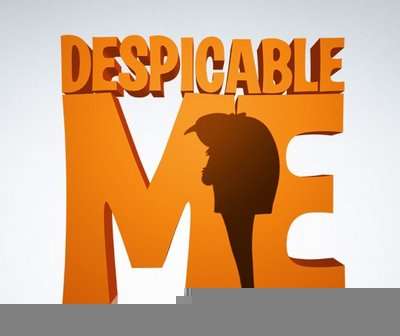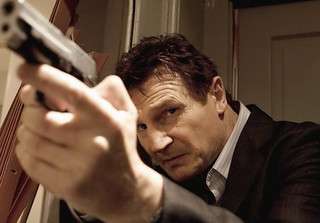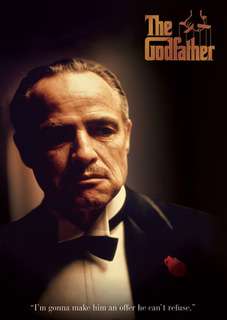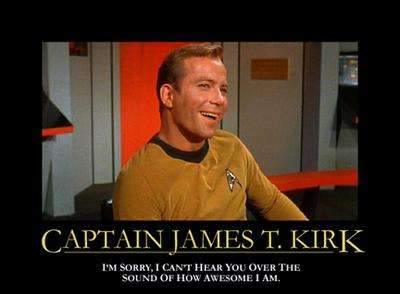By now, if you’re going to take my advice and read Atlas Shrugged in some form before the movie comes out, and you haven’t gotten started yet, I’m pretty sure you’re screwed. The movie is only about the first part out of three, and I read all three parts in the course of about four or five months, so this is somewhat consistent with my rate.
If you have started Part One and need some direction, this summary is for you. These are the ten points I expect to see in the movie — bearing in mind there are other people who have seen the screenings, and I am not one of them. So this is just an educated guess. The pieces I’m most certain are going to be there, appear first.
I think it’s mostly spoiler-free.
Now if you haven’t started it yet and would like to, you might get some value out of it too. Start here — then grab hold of the Cliff’s Notes.
1. “Who Is John Galt?” is a piece of slang people use in this made-up future, to express bewilderment, resignation or despair. It means: We’re not going to come to a resolution on this so let’s change the subject. It roughly translates to “oh well, whaddya gonna do?” Contrary to what you might expect, each and every word is deliberately chosen, although nobody who uses the phrase understands the meaning. This isn’t explained until well after the end of Part One.
2. Heroes. An Atlas Shrugged hero is an Ayn Rand hero, and Ayn Rand heroes possess certain characteristics. By choice, they are entirely disconnected from the eddies that reverberate through human social structures; they are entirely unresponsive to scorn, scolding, humiliation, insults, bickering, backtalk, disrespect, contempt, ridicule…there is only one personal slight that will get their cackles up, and that is the theft of their property. They make commitments very sparingly, but are religious about keeping them. The first thing they worry about, with any decision they make, is the eventual result. The last thing they worry about is whether someone else approves of it. If you’d like to flesh this point out without putting in a huge time commitment, maybe you’d be up for renting The Fountainhead with Gary Cooper.
3. Villains. Ayn Rand villains also possess certain characteristics. They are usually emotional, shrill, impetuous and unstable. The exceptions to this tend to wield authority over large organizations, which will inevitably crumble into nothingness simultaneous with their calm, cool personas. They are socially well connected because they worry constantly about being popular. But they’re completely two-faced so their abundant connections don’t say anything for their character. They whine a lot about fairness and blame. Nothing is ever their fault.
4. Companies. Atlas Shrugged is a story of companies as well as of people, and companies can be good & bad just like people. In this story, a company that is good is named after a person. A company that is bad is not. Good companies meet their deadlines reliably and bad companies do not. The point is that when commerce depends on delivery of a product or service, and the delivery isn’t made, there are multiple levels of suffering that ensue, directly caused by the commerce that is not taking place. You’ll also notice a lot of the bad companies are partially or completely invested in the public sector.
5. Profit. You’re going to find an Atlas Shrugged hero shows a certain fidelity to it. Early in the book there is an exchange between two people who manage a railroad company; it is a family-owned company and this is the brother, and sister who have inherited it. The argument is about canceling a contract with a steel company that has failed to deliver. The sister says the time has come to cancel because according to the terms of the contract, they have the right to do it and they need to move to a steel company that can make delivery. The brother is against this, not for reasons having to do with the continuing survival of the railroad company, but because he’s concerned about giving the unreliable steel company a “chance.”
6. Looters and Moochers. A moocher is someone who lives off the work of others without consent. A looter is someone with direct or indirect control over the state rules, who uses that control to direct resources to the moochers in exchange for their support, which is usually provided in the form of votes. When looters and moochers decide things, they end up making damn sure nobody else can decide anything at all. And that’s a problem because neither one produces anything of value to anybody else.
7. The Anti-Dog-Eat-Dog Rule. Legislation that is passed in Atlas Shrugged, is exaggerated caricature of legislation in real life that was most offensive to Ayn Rand, meaning legislation that is most statist. The commonality is that the people who know the least about how business really works, are going to be the ones who appreciate the positive cosmetic attributes of the legislation but the legislation will ultimately have a toxic effect on commerce and therefore on people. The Anti-Dog-Eat-Dog rule effectively outlaws competition; it says for any market there is to be served, one and only one company will be in charge of servicing it. After Part One this nonsense is going to get much worse.
8. Technology. You’re seeing two technological innovations here that are just starting to come into existence, and these are “maguffins”; they exist not only to complete plot points to drive the story, but also to define the characters as we see the reactions people show as these things are pursued. The two innovations are 1) an artificial metal alloy that doesn’t melt below four thousand degrees, and 2) an electric motor that draws its power from the static charge in the air. The villains place absolutely no value on these things at all, in fact they make arrangements to spend money on stopping these new things from becoming available. Naturally, they plan to spend this money out of what was forcibly seized from other people.
9. Thought. There is a persistent theme playing out that Atlas Shrugged villains are very casual about their thinking, which allows them to simply borrow thoughts from other people, because they don’t have any skin in the game — their standard of living, or lack thereof, is never directly connected to whether or not they have reached a correct decision about something. Because of this, their ability to think clearly has become atrophied over time. The only time they plan ahead is when they try to figure out how to preserve and expand their power. Atlas Shrugged heroes, on the other hand, profit personally and suffer personally according to the decisions they make, in all things. There is a scene where just a few of them oversee the construction of a new railway and then drive a locomotive over it at full speed. The whole point to this scene is that when your very life depends on getting all the answers right, it changes the way you look at the world.
10. Aristotle. The three parts of Atlas Shrugged are named after his Three Laws of Thought. If you don’t have time to read Atlas Shrugged before the movie comes out, read up on those three laws. The point is this: If people in a society “make” money without producing anything of value, what ultimately is going to start happening is that the most influential and far-reaching decisions are going to be made by people who disregard Aristotle’s rules of thought. And when that happens, everyone who lives in that society is going to pay a very high price for it. The unavoidable end result is that since such a society will not maintain the incentives to create wealth as quickly as it is being consumed, the very existence of each individual inside will be forfeit. So this is really a decision-point, a crossroads between life and death.









 Something is happening to the
Something is happening to the  In fact — Item #1, the woman and man getting into an argument about whether she’s coming with him or not? You even have a scene where Liam Neeson announces, right in front of his ex-wife who is the mother of his daughter who’s been kidnapped, that he’s going to Europe to get her back. It’s a perfect set-up for the tired old “Well, I”m coming with you!” “No you’re not!” “Yes I am!” It’s as if someone behind the camera said “Hold it guys, that’s going to piss off Morgan K. Freeberg of Folsom California, and we can’t have that, so let’s cut the scene NOW.”
In fact — Item #1, the woman and man getting into an argument about whether she’s coming with him or not? You even have a scene where Liam Neeson announces, right in front of his ex-wife who is the mother of his daughter who’s been kidnapped, that he’s going to Europe to get her back. It’s a perfect set-up for the tired old “Well, I”m coming with you!” “No you’re not!” “Yes I am!” It’s as if someone behind the camera said “Hold it guys, that’s going to piss off Morgan K. Freeberg of Folsom California, and we can’t have that, so let’s cut the scene NOW.”
 Whatever the situation, I thought I’d help the improvement along, because
Whatever the situation, I thought I’d help the improvement along, because  Think of the scene where
Think of the scene where  Now here is some irony: In the twentieth century, has there been any fictionalized character in any medium, electronic or print, more over-defined than Captain Kirk? Probably not. But in the old Star Trek, there were scenes that were ambiguous in their purpose. Here is Spock forming a theory about the alien, which defines Spock’s logic and superior intellect — but we’re also learning something about this week’s situation, something we’re pretty sure will become relevant later, so we’re fixated on that. Kirk being awesome, theatrically angry, oh-so-boldly protesting the death of his latest redshirt crewman, showing his Kirk-cajones…again, that is subordinate to this other purpose of figuring out what is going on, why the redshirt got killed, who’s keeping secrets from who.
Now here is some irony: In the twentieth century, has there been any fictionalized character in any medium, electronic or print, more over-defined than Captain Kirk? Probably not. But in the old Star Trek, there were scenes that were ambiguous in their purpose. Here is Spock forming a theory about the alien, which defines Spock’s logic and superior intellect — but we’re also learning something about this week’s situation, something we’re pretty sure will become relevant later, so we’re fixated on that. Kirk being awesome, theatrically angry, oh-so-boldly protesting the death of his latest redshirt crewman, showing his Kirk-cajones…again, that is subordinate to this other purpose of figuring out what is going on, why the redshirt got killed, who’s keeping secrets from who. Well, I’m of two minds about it. The girl is horribly miscast, but at least she does know how to act, kinda. Did I say horribly miscast? I meant awfully, terribly, reprehensibly, stink-on-wheels miscast. I think they broke the mold before they made Michael Bay. The man knows how to blow things up, and he knows how to have lots of guys walk in slow motion toward the camera in a classic “power walk” just before they face certain doom. But he couldn’t assemble a female character to save his life. He doesn’t seem to keep in mind if he’s developing a nice-girl, a bored-housewife, a bitch, a vamp, a hooker-with-a-heart-of-gold, an evil-stepmother, a dowager, a princess, a lady-of-the-lake, Juliet, Marion Ravenwood, Lieutenant Uhura, Scheherazade, et cetera, et cetera, et cetera. It’s like, to him, they’re all just one male stock character with a few different body parts.
Well, I’m of two minds about it. The girl is horribly miscast, but at least she does know how to act, kinda. Did I say horribly miscast? I meant awfully, terribly, reprehensibly, stink-on-wheels miscast. I think they broke the mold before they made Michael Bay. The man knows how to blow things up, and he knows how to have lots of guys walk in slow motion toward the camera in a classic “power walk” just before they face certain doom. But he couldn’t assemble a female character to save his life. He doesn’t seem to keep in mind if he’s developing a nice-girl, a bored-housewife, a bitch, a vamp, a hooker-with-a-heart-of-gold, an evil-stepmother, a dowager, a princess, a lady-of-the-lake, Juliet, Marion Ravenwood, Lieutenant Uhura, Scheherazade, et cetera, et cetera, et cetera. It’s like, to him, they’re all just one male stock character with a few different body parts. THE TROUBLE WITH HARRY
THE TROUBLE WITH HARRY